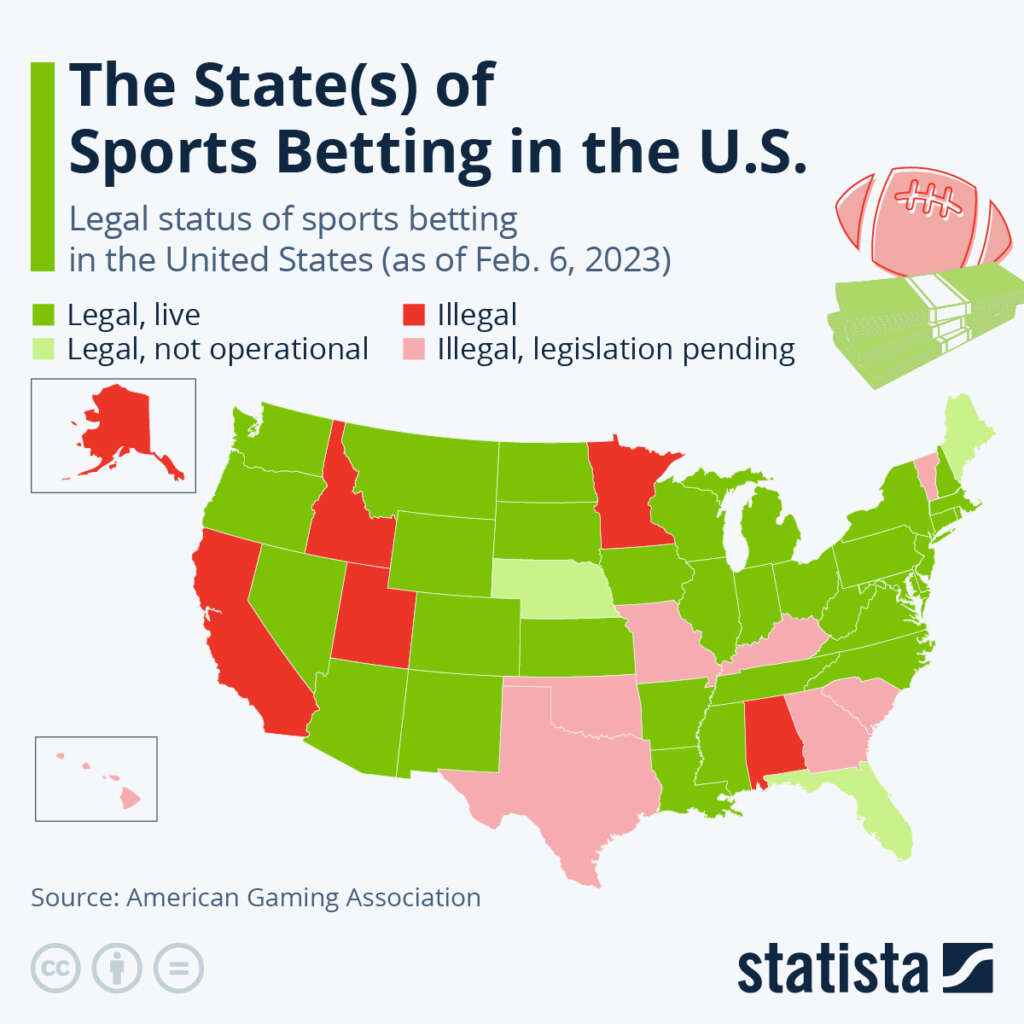The landmark decision by the United States Supreme Court on May 14, 2018, striking down the Professional and Amateur Sports Protection Act (PASPA), marked a pivotal moment in the nation’s approach to sports betting. PASPA, enacted in 1992, had effectively banned commercial sports betting in most states, leaving regulatory decisions to individual states. This legal framework outlawed sports betting nationwide but allowed exceptions for sports lotteries in Oregon, Delaware, and Montana, as well as licensed sports pools in Nevada.
Post-PASPA, the landscape of sports betting in the United States underwent a seismic shift. From merely two states where sports gambling was legal, the number surged to over thirty-two states that passed legislation actively permitting sports betting. Additionally, eight more states had legislation either in process or passed but not yet launched, indicating a broader trend toward embracing legal sports wagering. This transformation expanded legal betting access from just over 1% of the U.S. population to encompass over half of the nation.

However, it’s important to note that sports betting remains illegal in certain states, including Alabama, Alaska, California, Georgia, Hawaii, Idaho, Minnesota, Missouri, Oklahoma, Texas, South Carolina, and Utah. The implications of these restrictions are noteworthy, particularly given that California and Texas collectively constitute nearly 21% of the U.S. population. The potential legalization of sports betting in these states could significantly impact the industry, drawing the attention of sportsbooks aiming to tap into these populous markets.
Currently, the state of New York boasts the largest legal sports betting market. The rapid expansion of legal sports betting has spurred economic growth, generating revenue for both the states and the sports betting industry. The increased accessibility of legal betting options has not only provided a regulated environment for enthusiasts but has also curtailed the influence of illegal betting operations.
The evolving landscape of the gambling industry is a testament to the dynamic nature of legal frameworks surrounding sports betting. As more states embrace and regulate sports wagering, the industry’s footprint continues to grow, influencing not only the entertainment sector but also contributing to state revenues. The changes witnessed post-PASPA underscore the importance of adaptable regulatory frameworks that cater to the evolving preferences and demands of the public.
Looking ahead, the trajectory of sports betting in the United States remains uncertain, with ongoing legislative discussions and potential expansions into currently restricted states. As the industry continues to mature, stakeholders, including policymakers, operators, and consumers, will play crucial roles in shaping the future of sports betting in the country. The impact of these changes is not confined to the realm of entertainment; it extends to economic considerations, public policy, and the broader landscape of legal gambling in the United States. The narrative of sports betting in the U.S. is a dynamic one, with each legislative decision and market development shaping the next chapter in this evolving story.

